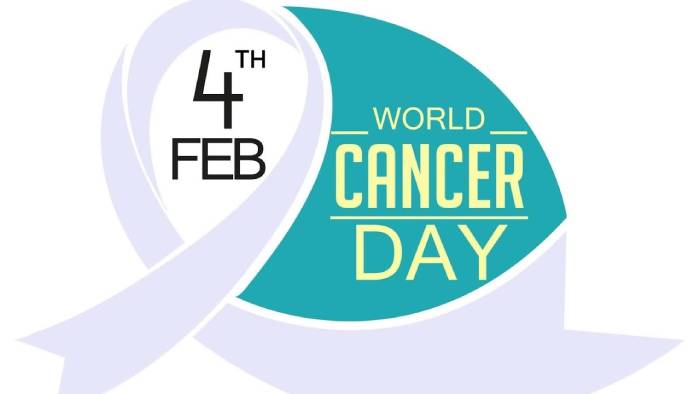Every year on February 4th, people all around the world celebrate World Cancer Day to raise awareness, inspire action, and minimise cancer’s global effect. The goal is to minimise cancer-related myths and prejudices, as well as to assist people in receiving accurate information about the disease. It also provides an opportunity to make a difference in the lives of cancer patients and survivors. World Cancer Day has been recognised a “global uniting initiative” by the Union of International Cancer Control (UICC).
Cancer is one of the world’s major causes of death, claiming the lives of around 10 million people each year. Cancer impacts not only the individual who is sick, but also those who are close to them. A cancer patient’s path is hard since it depletes the person’s mental and physical energies completely.
According to data compiled by the National Center for Biotechnology Information (NCBI), only 5-10% of cancer cases are caused by genetic abnormalities. 90-95 percent of cancer cases are caused by lifestyle and environmental factors.
As we commemorate World Cancer Day today, here are a few lifestyle guidelines to help you stay away from this heinous and fatal disease:
1. Avoid using tobacco
Tobacco use, in any form, puts you on a collision path with cancer. Various types of cancer, including lung, mouth, throat, larynx, pancreas, bladder, cervix, and kidney cancer, have been related to smoking. Tobacco chewing has been linked to cancers of the mouth and pancreas. Exposure to secondhand smoke, even if you don’t use tobacco, may increase your risk of lung cancer.
Tobacco avoidance — or the decision to cease using it — is a critical component of cancer prevention. If you need assistance quitting cigarettes, talk to your doctor about stop-smoking products and other methods.
2. Consume a healthy diet
A good diet is like a universal key that opens the gates to all the good things your body can experience. A balanced and healthy diet maintains your body’s ability to cope with changing hygiene in diverse surroundings and keeps you healthy. Furthermore, many foods include therapeutic and anti-carcinogenic characteristics that may help to combat cancer-causing cells.
Making smart choices at the grocery store and during meals won’t ensure cancer prevention, but it will lower your risk. Consider the following suggestions:
- Consume a lot of fruits and vegetables. Fruits, vegetables, and other plant-based foods, such as whole grains and beans, should form the foundation of your diet.
- Maintain a healthy weight. Choose less high-calorie foods, such as refined carbohydrates and animal fat, to lose weight and become leaner.
- If you must consume alcohol, do it in moderation. The amount of alcohol you drink and the length of time you’ve been drinking consistently raises your chance of several types of cancer, including cancers of the breast, colon, lung, kidney, and liver.
- Limit your intake of processed meats. According to a report from the World Health Organization’s International Agency for Research on Cancer, eating high amounts of processed beef can marginally increase the risk of certain types of cancer.
Furthermore, a Mediterranean diet supplemented with extra-virgin olive oil and mixed nuts may lower the incidence of breast cancer in women. Plant-based foods, such as fruits and vegetables, whole grains, legumes, and nuts, are the mainstays of the Mediterranean diet.
Maintaining a healthy weight may reduce the incidence of cancers of the breast, prostate, lung, colon, and kidney, among others.

3. Be physically active and maintain a healthy weight
A good food is a universal key, and an active body is a robust barrier that prevents any evil organism from disrupting the body’s regular functions. Exercising on a daily basis keeps your BMI in check and stops you from becoming obese. Obesity is a dangerous condition that can lead to a variety of illnesses, including cancer.
Physical activity is also important. Physical activity may reduce your risk of breast cancer and colon cancer on its own, in addition to helping you regulate your weight.
Adults who engage in any level of physical activity boost their health. However, for significant health advantages, aim for at least 150 minutes of moderate aerobic activity or 75 minutes of strong aerobic activity every week. A combination of moderate and vigorous activity is also an option. Include at least 30 minutes of physical activity in your daily routine as a general objective — and if you can do more, all the better.
4. The sun is beneficial, but not in excess:
Sunbathing is a healthful habit that provides the body with the vitamin D it need. Long-term exposure to a blistering sun, on the other hand, may cause skin cancer. It is caused by UV light, which weakens the skin’s immune system and allows malignant cells to attack the skin.
One of the most frequent types of cancer is skin cancer, which is also one of the most preventable. Consider the following suggestions:
- Avoid the sun during the daytime hours. Avoid the sun during the hours of 10 a.m. and 4 p.m., when the sun’s rays are at their fiercest.
- Stay in the shade. When you’re outside, try to keep as close to the shade as possible. Sunglasses and a wide-brimmed hat are also beneficial.
- Cover any sections that are exposed. Wear clothing that is densely woven and loose fitting to cover as much of your flesh as possible. Bright or dark colours, as opposed to pastels or bleached cotton, reflect more UV energy.
- Don’t be stingy with your sunscreen. Even on cloudy days, use a broad-spectrum sunscreen with an SPF of at least 30. Apply sunscreen liberally and reapply every two hours — or more frequently if you’re swimming or sweating heavily.
5. Receive regular medical care
Regular self-exams and screenings for cancer types of the skin, colon, cervix, and breast, for example, can improve your chances of detecting cancer early, when treatment is most likely to be effective. Inquire with your doctor about the most appropriate cancer screening schedule for you.
- The Top 5 Foods in the US That Are Counterfeit - May 4, 2024
- The Top 5 Billionaires in the Technology Industry - May 4, 2024
- The Types of Small Businesses That Make the Most Profit - May 4, 2024





